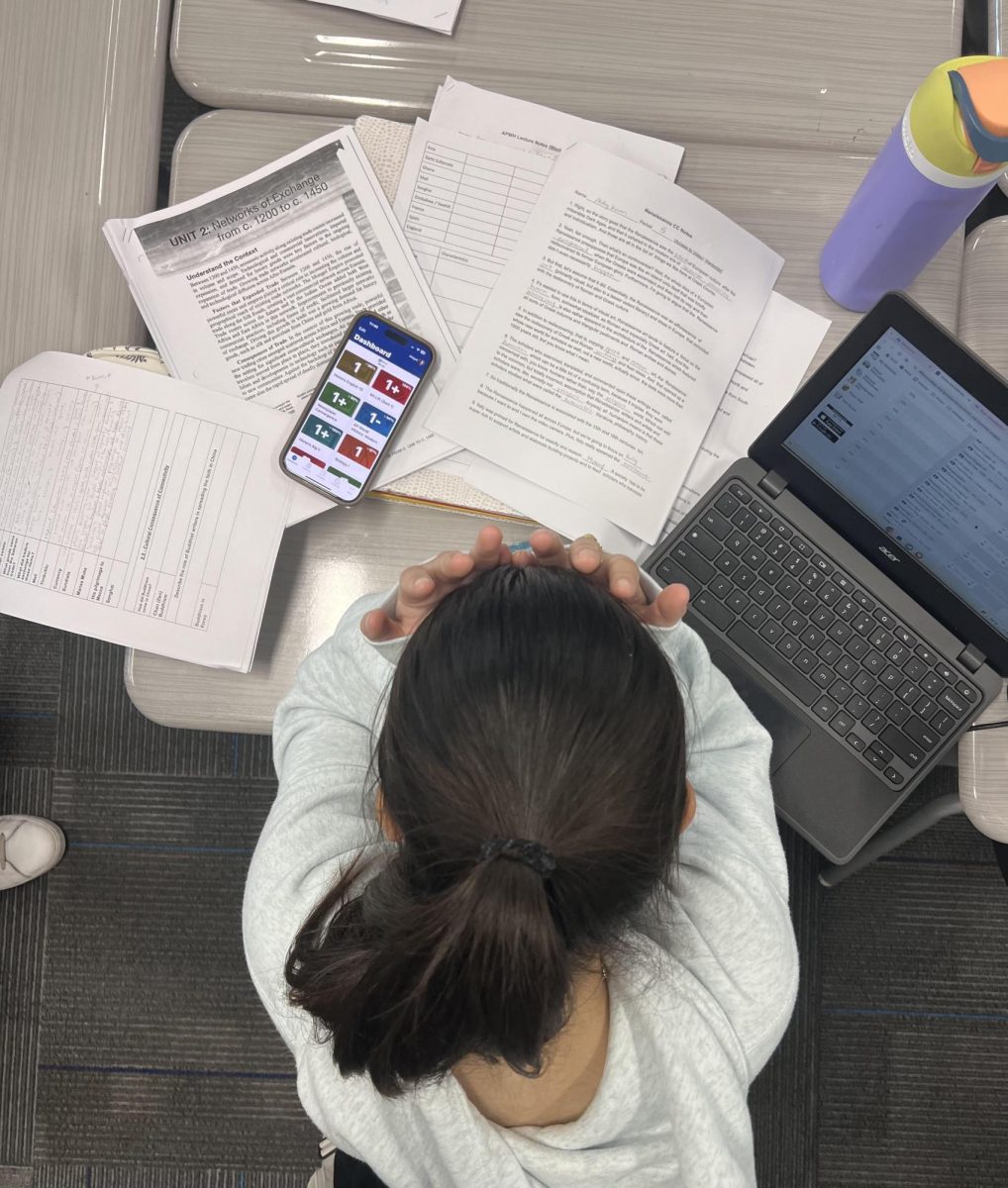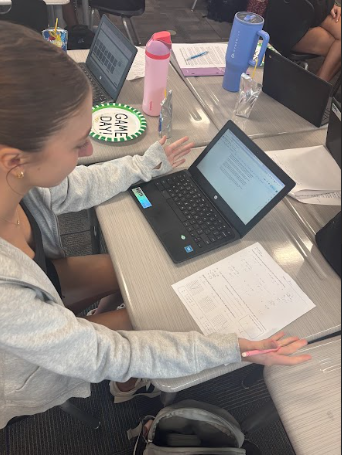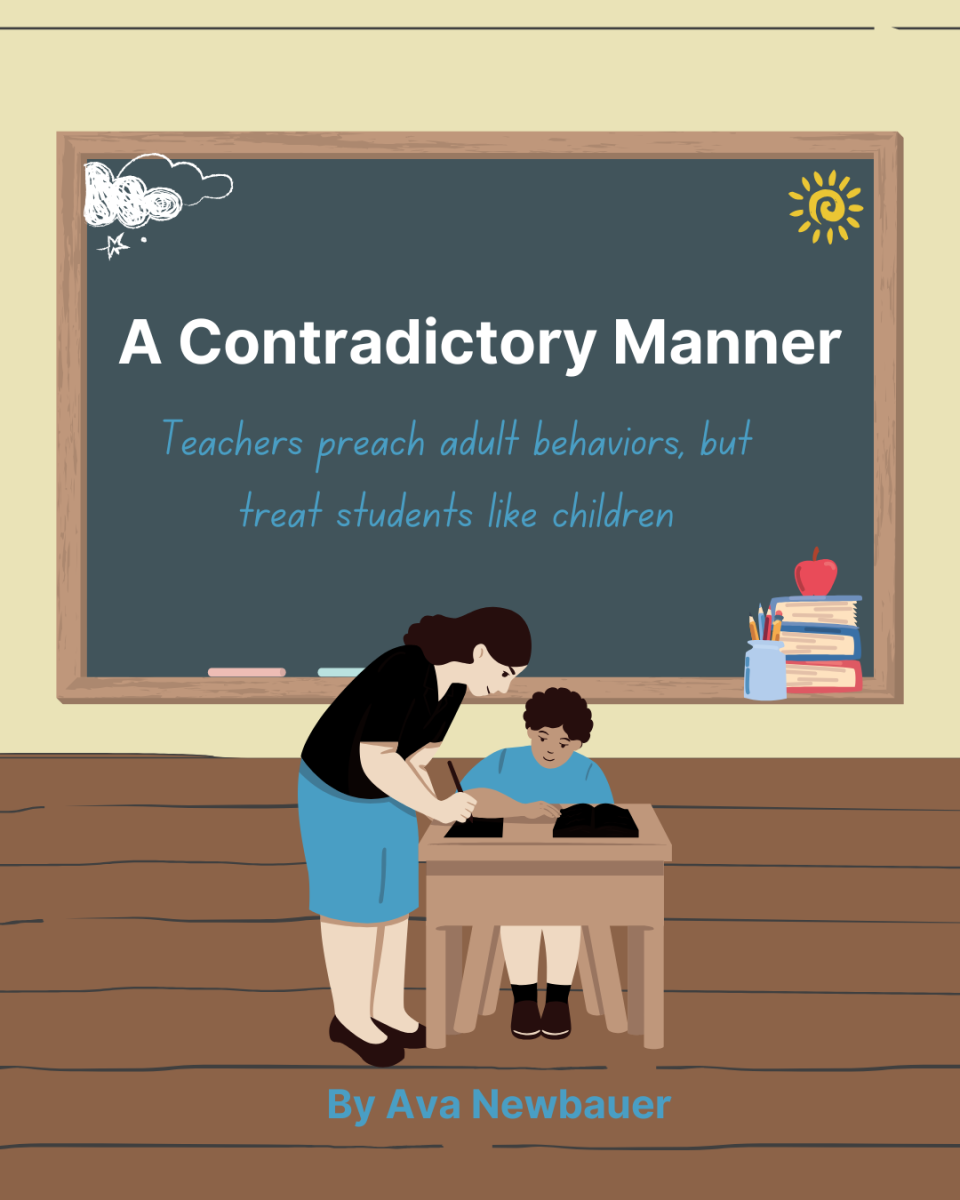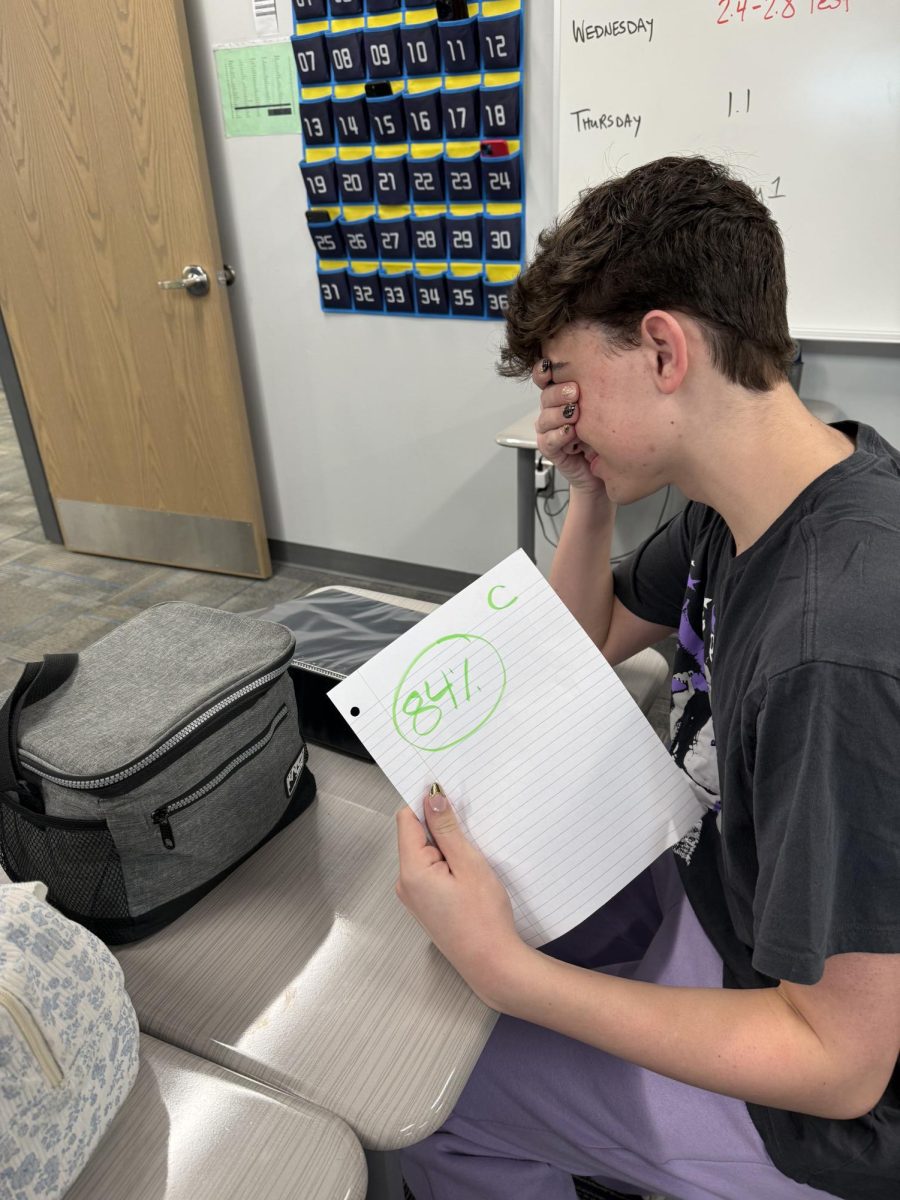At Elkhorn North, the pressure to succeed is impossible to ignore. The school is known for its extremely high academic standards, and students are expected to live up to them. Classes move fast, and students are often pushed into AP and honors courses. Missing even one day can put a student far behind and create stress that is hard to recover from.
Compared to other schools, Elkhorn North has a more competitive atmosphere. The Elkhorn area experiences less poverty than many other parts in Nebraska, and in more affluent areas, families often have higher levels of education and higher expectations for success.
“There’s a lot more affluence, whether it’s because parents are more educated or parents have more money,” science teacher Abby Sekle said. “Because they are more educated, kids here start off at level four instead of level one. They have higher expectations from the get go.”
The stats show just how competitive the school really is, and how high the bar is set. Elkhorn North is ranked second in Nebraska with a 95% graduation rate, and 63% of students are enrolled in AP and other rigorous classes. According to US News and World Report, students consistently perform above the state average on standardized tests, which reflects the high academic standards students are expected to meet.
But it’s not just classes that cause students stress. Everyone seems to be involved in something. To better understand this I interviewed 200 students of all grades. The pressure doesn’t just end when the school day does; 97.6% of the student body reported being involved in at least one extracurricular activity. Whether it’s sports, clubs, jobs, or volunteering, students struggle to keep up with their packed schedules that often overlap.
For many, every free moment is booked. Between practices, rehearsal, and shifts at work, many find themselves starting homework late into the night. Students average two hours of homework every night and the majority of students reported getting six hours of sleep, which is well below what doctors recommend. Doctors suggest 9-9.5 hours of sleep for teens every night. This leads to sleep deprivation and stress that seeps into every part of life. Because of this, students often find themselves unfocused, unproductive, and struggling to keep up, which is the very opposite of the high achieving ideal they are pushed to maintain.
“A lot of the time I’m not able to live in the moment,” junior Kaitlyn Huff said. “I’m always worried about so many other things.”
Even missing a single class can create a domino effect of make-up work and stress.
“Sometimes I’ll be gone for one period because of volleyball and I’ll have to make up so much,” sophomore Nora Morgan said.
For student athletes especially, the struggle to manage time can feel overwhelming. Between practices, games, and travel, schoolwork often comes second even when it can’t afford to.
“After game nights, I’ll get home around 9:00 or 9:30 and I’ll still have 2-3 hours of homework to do,” Morgan said.
In addition to trying to maintain extracurricular activities, stress becomes a constant. Many students say they feel like they’re always behind, always catching up, and never getting enough sleep. There’s pressure to do well in school, to be involved in multiple activities, to look good for college applications, and to keep up with peers. The expectations don’t let up.
While a certain level of stress can motivate students to stay on top of their work and perform well, too much of it can have serious consequences. Stress can disrupt sleep, make it harder to focus, and hurt learning overall. Students who are up late every night doing homework often are too tired to concentrate, retain information, or even stay present in class. Socially, constant exhaustion can cause students to pull away from others. This leads to students become too drained to hang out, participate in class, or build friendships.
Teachers sometimes notice students being quiet and assume they’re not paying attention, but in reality, many are just burned out. The line between healthy pressure and harmful burnout is thin and for many students, it’s already been crossed.
The strive for excellence shouldn’t come at the cost of student well-being. The stress and burnout so many students experience aren’t just a part of high school life, they’re signs that something needs to change.
Success shouldn’t equate constant exhaustion. The goal shouldn’t just be to get through the week, it should be to promote an environment and community where students can thrive.
“A lot of the time there’s this pressure on the kids to strive for this perfection that doesn’t exist,” Sekle said. “It’s not realistic to be able to get all ones all the time.”
















